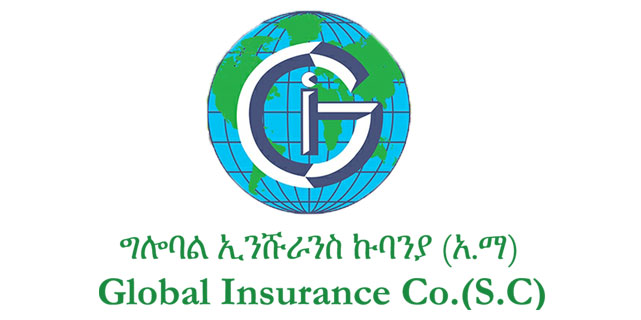
Fortune News | Aug 17,2025
Nov 21 , 2020
By FASIKA TADESSE ( FORTUNE STAFF WRITER )
The sluggish digitisation process at the Insurance Fund Administration Agency has resulted in a scarcity of vehicle insurance policies against third-party risks. Insurance companies have now run out of stock and are not serving customers seeking to buy policy coverage for risks that occur to third parties by an insured individual.
Initially planned to be launched at the beginning of November, the digitisation project was aimed at enabling insurance companies to work on a web-based system while selling policies. The Agency decided to take the service online, hoping to manage data and information using a centralised system. During the digitisation process, the Agency significantly cut the number of stickers and corresponding certificates of insurance it issues to insurance companies.
"We're almost getting no stickers or certificates," said a senior executive at one of the oldest insurance firms who requested anonymity. “We've collected the stickers from the regional states since we’ve run out of stock. Now, we've finished all of them and stopped providing the service."
A proclamation that was issued seven years ago criminalised driving cars without third-party insurance. Anyone who offends the law is subjected to a fine between 3,000 Br to 5,000 Br or imprisonment from one year to two years. A certificate of insurance is valid for one year from the date of issuance. And whenever a vehicle gets a new owner, the Agency requires the buyer to purchase a new policy.
Under a third-party insurance policy, an insurer pays compensation and the cost of emergency medical treatment to any third party for death, bodily injury or damage to property caused by the vehicle of an insured person.
The Agency also fully covers the medical expenses of individuals who suffered from road traffic accidents caused by uninsured and unknown drivers. Last year, it spent 13.6 million Br for medical treatment provided by 158 health centres to 27,730 people.
The delay in digitisation has occurred due to issues in getting the server on time, according to Shimelis Tamirat, deputy director at the Agency, which has distributed 777,617 insurance certificates in the last fiscal year. During the year, the Agency covered 1.5 million Br for accidents involving 44 people under the third-party insurance policy, while insurance companies paid 448.1 million Br for accidents involving 3,454 individuals and 16,235 vehicles.
The Agency has been negotiating with Ethio telecom to rent a server. And it is on the final stage to ink a rental deal with the company with an annual fee of 65,324 Br.
"We're waiting until Ethio telecom finalises the security checks," he told Fortune. "A two-week pilot test will follow before fully operationalising the system."
Upon being functional, the web-based system will enable the Agency to remotely detect who bought an insurance policy, from which insurance firm and specific branch, and how many policies each insurance firm has sold.
Before deciding to digitise the process, the Agency conducted an assessment that recommended it roll out a deep reform of the service, according to Shimelis.
"We found many vehicles on the roads without third-party insurance policies," he said, "there were even vehicles with forged stickers."
The Agency, which was formed in 2013 under the Ministry of Transport, holds continuous consultations with stakeholders to discuss how to address the problems and embark on the digitisation process, according to Shimelis.
As part of the reform process, the Agency introduced a triangular sticker as of the new fiscal year with new security features including bar codes. The stickers are printed at the state printer, Berhanena Selam Printing Enterprise.
"After launching the system," said Shimelis, "we'll then work out how to proceed with equipping traffic police members with smartphones to check the authenticity of the stickers."
Even though the Agency has ceased the regular printing of the stickers, it is issuing stickers to the firms that filed letters to get the certificates, according to the deputy director of the Agency, which covered 103,000 Br during the first quarter of this fiscal year, while the insurance companies covered 188.2 million Br for the accidents that occurred on 3,822 properties and 797 individuals.
A veteran expert working in the insurance industry for the past two decades, argues that third-party insurance policies should be handled by insurers associations instead of a government agency. The expert stated that there is efficiency when the industry operators administer the service.
"Even in neighbouring Kenya, the service is provided by the Insurers Association," said the expert. "The Association can use the revenues generated from the service to conduct research and development activities to help the sector grow."
PUBLISHED ON
Nov 21,2020 [ VOL
21 , NO
1073]

Fortune News | Aug 17,2025

Viewpoints | Oct 19,2019

Radar | Dec 26,2020

Commentaries | Sep 27,2020

Fortune News | Nov 03,2024

Fortune News | Nov 06,2021

Fortune News | Feb 18,2023

Fortune News | Jul 17,2022

Fortune News | Mar 07,2020

Viewpoints | Apr 20,2019

Dec 22 , 2024 . By TIZITA SHEWAFERAW
Charged with transforming colossal state-owned enterprises into modern and competitiv...

Aug 18 , 2024 . By AKSAH ITALO
Although predictable Yonas Zerihun's job in the ride-hailing service is not immune to...

Jul 28 , 2024 . By TIZITA SHEWAFERAW
Unhabitual, perhaps too many, Samuel Gebreyohannes, 38, used to occasionally enjoy a couple of beers at breakfast. However, he recently swit...

Jul 13 , 2024 . By AKSAH ITALO
Investors who rely on tractors, trucks, and field vehicles for commuting, transporting commodities, and f...

Oct 25 , 2025
The regulatory machinery is on overdrive. In only two years, no fewer than 35 new pro...

Oct 18 , 2025
The political establishment, notably the ruling party and its top brass, has become p...

Oct 11 , 2025
Ladislas Farago, a roving Associated Press (AP) correspondent, arrived in Ethiopia in...

Oct 4 , 2025
Eyob Tekalegn (PhD) had been in the Governor's chair for only weeks when, on Septembe...